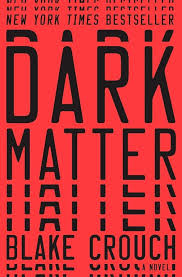Consider this problem. A bat and ball cost $1.10. The bat costs $1 more than the ball. How much does the ball cost?
Continue reading “Thinking, Fast and Slow”
The Past Is Always Present
What can you find in Mark Through Old Testament Eyes? Glad you asked. Here’s what some have had to say.
Continue reading “The Past Is Always Present”
From Africa for the World
Why would a old, white, North American, evangelical male be interested in the Africa Study Bible? I’ll get to that in a minute. First, a bit of introduction to this remarkable volume.
Continue reading “From Africa for the World”
A Man and His Metaphors
One of the many delightful features of Fredrik Backman’s bestselling novel is his frequent use of apt similes and metaphors to paint vivid, miniature portraits of the cantankerous and lovable main character in A Man Called Ove.
Continue reading “A Man and His Metaphors”
Classic Writing Advice from a Dystopian Author
George Orwell published his famous essay “Politics and the English Language” in 1946 while he was working on his dystopian novel 1984. Both deal with the way bureaucracies hide their agendas with convoluted grammar, pretentious word choice and intentional ambiguity. In this way, they conceal the fact that “pacification of the population” actually means “defenseless villages are bombarded from the air, the inhabitants driven out into the countryside, the cattle machine-gunned, the huts set on fire with incendiary bullets.”
Continue reading “Classic Writing Advice from a Dystopian Author”
Grandchildren and the Older, Older Story
Two of my passions are grandchildren and the Old Testament. That may seem like an odd pair, but that also seems to be the case for Psalm 78. So it was a natural to include a study on that Psalm in our Grandparenting LifeGuide (the third study, if you are counting).
Continue reading “Grandchildren and the Older, Older Story”
Why I Wrote Mark Through Old Testament Eyes
For years now I have taught the gospel of Mark to InterVarsity college students. Often they would raise questions about confusing or troubling passages:
Continue reading “Why I Wrote Mark Through Old Testament Eyes“
Grandchildren and Contentment
As we finished up the first draft of our Grandparenting LifeGuide, Phyllis said, “I think something is missing. I think we need to deal with grandparents often inundating their grandchildren with big, expensive gifts. But all I can think of is something that has to do with materialism. Yet that doesn’t seem quite right.”
Continue reading “Grandchildren and Contentment”
Science Fiction at Its Best
Science fiction at its best helps us care about ideas and care about people. Blake Crouch’s Dark Matter hits both targets dead center. It’s the best I’ve read this year among many top-rated novels in the genre.
Too often SciFi is plot driven, like an action movie. It’s fun, to be sure. And Dark Matter has plenty of action and drama. But that’s not what sets this book apart.
 So what’s the central idea the book deals with? What would it be like to live a different version of your life, to follow a different key choice you made that would lead you down a different path? Yes, that’s not entirely new, but its an important idea, one that the book makes you think about.
So what’s the central idea the book deals with? What would it be like to live a different version of your life, to follow a different key choice you made that would lead you down a different path? Yes, that’s not entirely new, but its an important idea, one that the book makes you think about.
Likewise, Blake Crouch focuses on people–the other missing dimension from so many SciFi books. His central character, Jason Dessen living in present-day Chicago, is three dimensional, complex and conflicted. He and others are not cardboard cut outs used as excuses for a wild ride through the universe. They are people we can identify with, imagine ourselves with, imagine wanting to help.
What’s Jason’s dilemma? Think of those who are closest and dearest to you, and now imagine they are suddenly gone–either by your own choices or because of others. How do you feel and what do you do to get them back? Would you compromise your own values and ethics to do so? Would you let them go for a greater good? The gravity of Crouch’s book draws us into all these questions.
In short, Dark Matter is deeply human, taking seriously both heart and mind.
A Generous Calvinism
Generous Calvinism may seem like an oxymoron, but in Saving Calvinism Oliver Crisp helps file the rough edges off a narrow, ossified version of this venerable tradition. The result is a Calvinism that embraces the breadth of its own heritage.
Continue reading “A Generous Calvinism”
